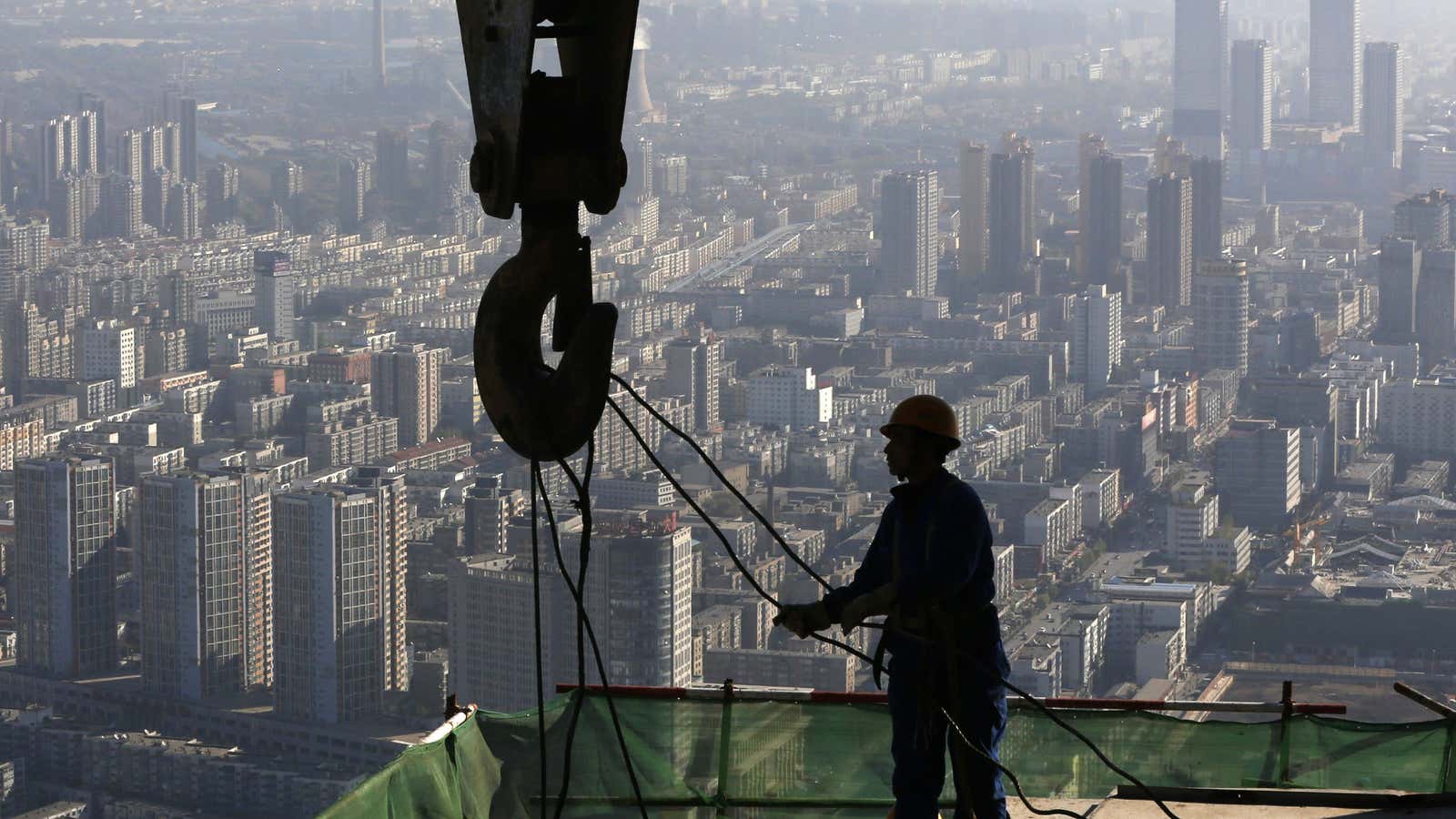For many who have long believed that China’s economic growth figures seemed too good—and tidy—to be true, they now have official confirmation of that skepticism.
China’s economy expanded by 6.7% in the third quarter of 2016, as it did in the previous two quarters. As China is set to release fourth-quarter GDP figures on Jan. 20, China’s economic growth looks right on track to hit the government’s target growth rate of no less than 6.5% for the full year.
But China’s northeastern Liaoning province, which relies on steel production as its growth engine, had inflated its GDP figures from 2011 to 2014, said province governor Chen Qiufa on Jan. 17 in his annual work report, according to the state newspaper People’s Daily (link in Chinese). It is the first time the Chinese government has publicly admitted to faking official statistics at any level.
Fiscal revenues were inflated by at least 20% during the period, and some other economic data were also made up, the People’s Daily said.
Liaoning was the only province that fell into recession in 2016. In the first three quarters of last year, Liaoning’s GDP contracted 2.2% from the same period in 2015, thanks largely to a severe downturn in heavy industry.
Liaoning failed to hit government targets in key economic metrics in 2016, including GDP growth, fixed asset investment, and exports. The major culprit, Chen claimed, was that the economic policies implemented by provincial officials in the past had “strayed from the path decided by the central government and the pragmatic way of the party.”
“Officials produce the numbers, and the numbers produce officials,” Chen added, referring to the idea that massaging data can help one get ahead in Chinese officialdom.
China’s top anti-corruption agency first named and shamed Liaoning for faking economic data in 2014, after it sent out a “central inspection team” to the region. But Chen’s recent government report is the first “public recognition” of the data-doctoring problem, the People’s Daily noted. Last August, the inspection team concluded their investigation saying faking economic data was “rampant throughout the province during a certain period of time,” but without giving more details. At around the same time, Wang Min, former party boss of Liaoning from 2009 to 2015, was arrested by police for taking bribes. Wang is set to be tried (link in Chinese) this month.
Since 2014—the year that Liaoning stopped inflating its economic growth figures—fixed asset investment, a key gauge of construction activity, has been declining 60% to 70% each year in the province. Liang Qidong, vice president of the Liaoning Academy of Social Sciences, told the newspaper that such steep declines simply cannot be explained by any economic theory.
Now we have an explanation.
